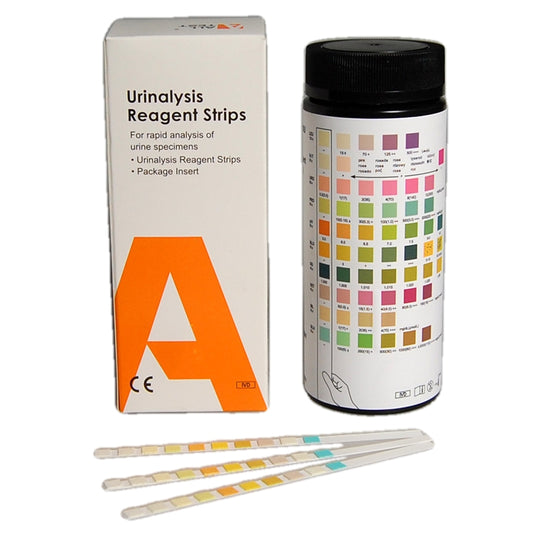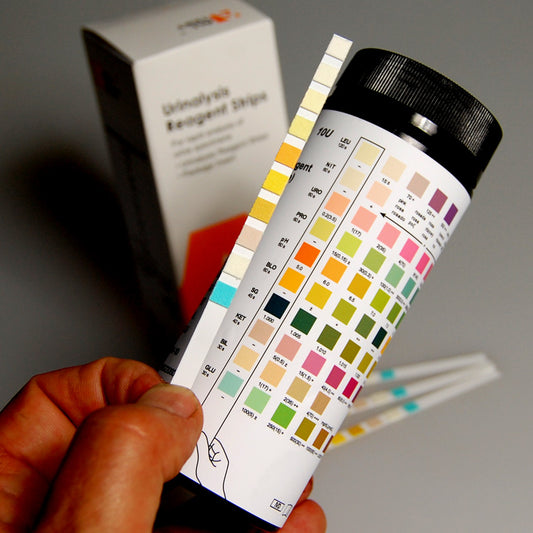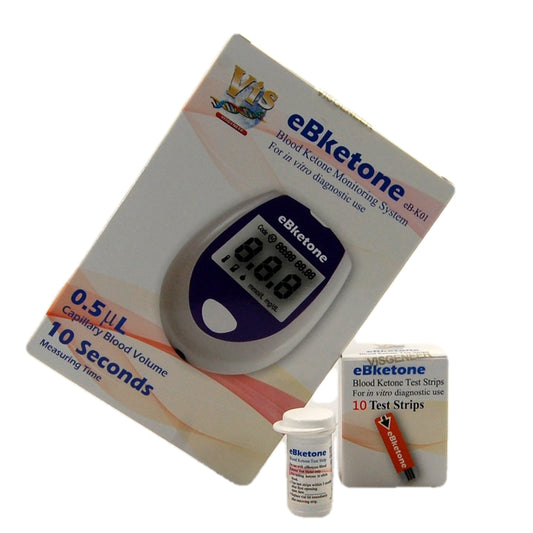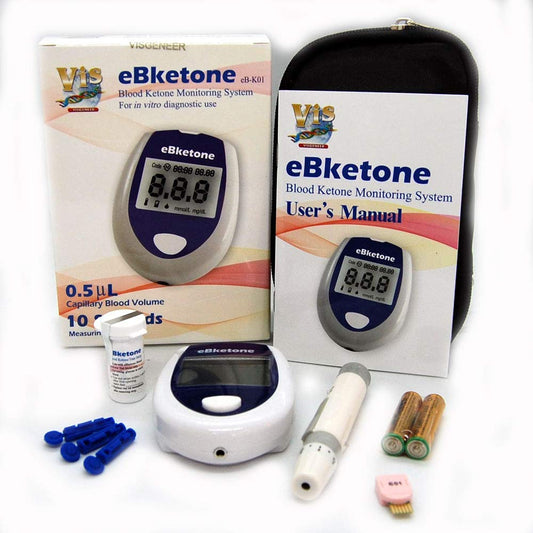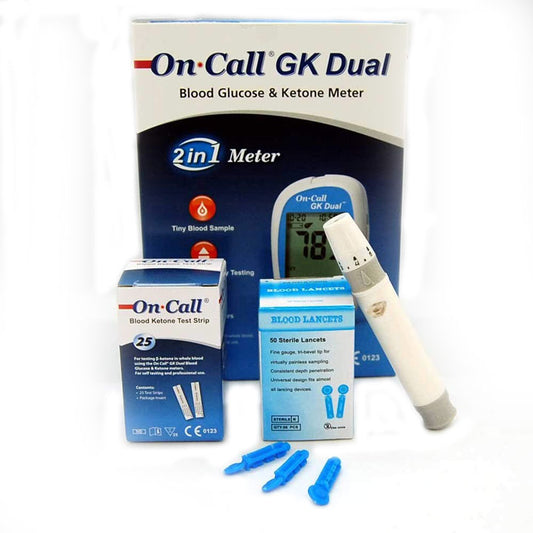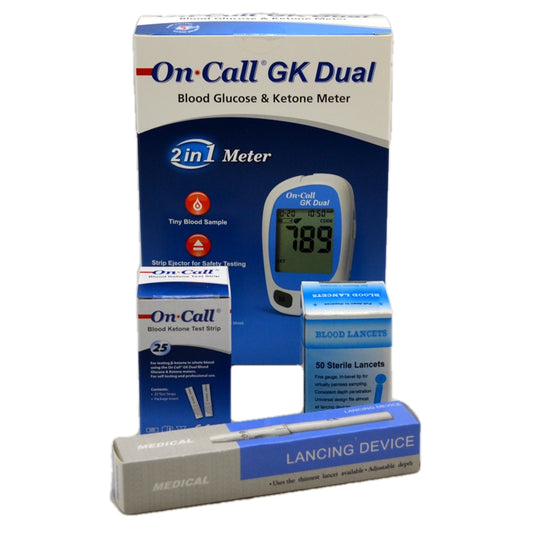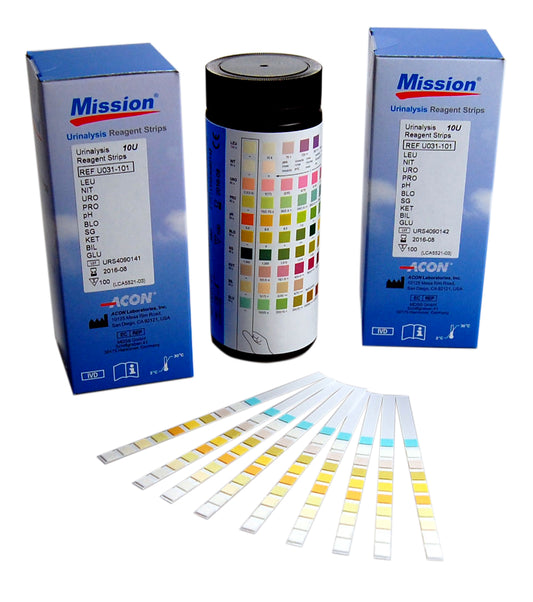Collection: Ketone Strips
-
25 On Call Blood Ketone Test Strips
10 reviewsRegular price From £19.95 GBPRegular priceUnit price / per -
FREE KETONE Meter when you buy 50 On Call Blood Ketone Strips ( 2 x 25 test strips)
10 reviewsRegular price £39.99 GBPRegular priceUnit price / per£61.97 GBPSale price £39.99 GBPSale -
ALLTEST 10 Parameter URS10 Urinalysis Urine Test Strips Pack of 100 test strips
14 reviewsRegular price From £6.75 GBPRegular priceUnit price / per -
eBketone Blood Ketone Test Strips
No reviewsRegular price From £17.95 GBPRegular priceUnit price / per£33.90 GBPSale price From £17.95 GBPSale -
FREE ebketone KETONE Meter when you buy an 20 eBketone Blood Ketone Strips here
7 reviewsRegular price £33.90 GBPRegular priceUnit price / per -
On-Call Dual Glucose & Ketone Meter + 25 Blood Ketone Test Strips + 50 Blood Glucose Test Strips + 100 Lancets & Auto-lancer
No reviewsRegular price £59.00 GBPRegular priceUnit price / per -
3 x On Call Chosen + 6 x On Call Ketone Test Strips Bundle
2 reviewsRegular price £148.46 GBPRegular priceUnit price / per£173.67 GBPSale price £148.46 GBPSale -
FREE Glucose / Ketone Meter-Free Mission On Call GK Meter when you buy 50 On Call Chosen Glucose Test Strips +25 On Call Blood Ketone Strips + 100 On Call Lancets +On Call Auto Lancing Device
No reviewsRegular price £47.86 GBPRegular priceUnit price / per£69.85 GBPSale price £47.86 GBPSale -
Free Ketone Meter-Free On Call GK Dual Blood Ketone Meter When You Buy 25 On Call Ketone Test Strips + 100 On Call Lancets + On Call Auto Lancing Lancing Device
2 reviewsRegular price £29.87 GBPRegular priceUnit price / per£51.86 GBPSale price £29.87 GBPSale -
40 eBketone Blood Ketone Test Strips
1 reviewRegular price £60.99 GBPRegular priceUnit price / per£67.80 GBPSale price £60.99 GBPSale -
On Call GK ketone meter 25 Ketone test strips Lancer+Lancets bundle starter pack displays in mmol/L
No reviewsRegular price £45.00 GBPRegular priceUnit price / per -
eBketone Vet Blood Ketone Test Strips
No reviewsRegular price From £24.99 GBPRegular priceUnit price / per£49.98 GBPSale price From £24.99 GBPSale -
Wholesale On Call Blood Ketone Strips
No reviewsRegular price £995.00 GBPRegular priceUnit price / per -
MISSION 10 Parameter Urine Test Strips Pack of 100 URS10U
2 reviewsRegular price £8.99 GBPRegular priceUnit price / per
Ketone test strips for blood and urine
Ketone strips are a type of diagnostic tool used to measure the level of ketones in the blood or urine of an individual. Ketones are chemicals produced by the liver when the body burns fat for energy instead of carbohydrates. Ketones can be detected in the urine and blood, and high levels may indicate a medical condition called ketosis. Ketosis can occur due to several reasons such as fasting, a low-carbohydrate diet, or diabetes. Ketone test strips can help individuals monitor their ketone levels and make necessary adjustments to their diet and treatment plan. Ketone test strips for urine are widely available and easy to use, while ketone test strips for blood are more accurate and commonly used by individuals with diabetes.
Ketone strips for blood
Ketone test strips for blood are more accurate than urine strips and are used to measure the level of ketones in the blood. These strips are used by individuals with diabetes who use insulin to manage their blood sugar levels. High levels of ketones in the blood can indicate a medical emergency, and individuals with diabetes need to monitor their ketone levels regularly to prevent DKA (diabetic ketoacidosis).
To use ketone strips for blood, individuals need to follow these simple steps:
- Wash their hands with soap and warm water.
- Insert a test strip into a ketone meter.
- Use a lancet device to prick their finger and obtain a small blood sample.
- Apply the blood sample to the test strip and wait for the meter to display the ketone level.
Ketone test strips for blood are more accurate than urine strips, and the results are available within seconds. Individuals with diabetes who use insulin should monitor their ketone levels regularly, especially when they are sick, have an infection, or have high blood sugar levels. Blood ketone test strips are also often used by those on keto diets who wish to closely monitor their ketone levels to see if they are in ketosis. The blood ketone strips require the correct blood ketone meter to work. See ketone meters section of our website if you do not already have a ketone meter.
Ketone Strips for Urine
Ketone test strips for urine are widely available and are simple to use. These strips contain a special chemical that reacts with ketones in the urine and changes color. The color change on the strip can be compared to a chart that comes with the test strips to determine the level of ketones in the urine.
To use ketone strips for urine, individuals need to follow these simple steps:
- Collect a urine sample in a clean, dry container.
- Remove a ketone test strip from the container and dip it into the urine.
- Shake off any excess urine and wait for the strip to change color.
- Compare the color of the strip to the color chart on the container to determine the level of ketones in the urine.
Ketone testing strips for urine are useful for individuals who want to monitor their ketone levels at home. These strips are also commonly used by individuals with diabetes to monitor their blood sugar levels and prevent diabetic ketoacidosis (DKA), a serious condition that can occur when the body produces high levels of ketones. They are also used by dieters following keto diets.
Ketone strips are a useful tool for individuals who want to monitor their ketone levels in urine and blood. These strips can help individuals with diabetes manage their blood sugar levels and prevent DKA. Ketone test strips for urine are widely available and easy to use, while ketone test strips for blood are more accurate and commonly used by individuals with diabetes. By using ketone test strips, individuals can monitor their ketone levels and make necessary adjustments to their diet and treatment plan.





